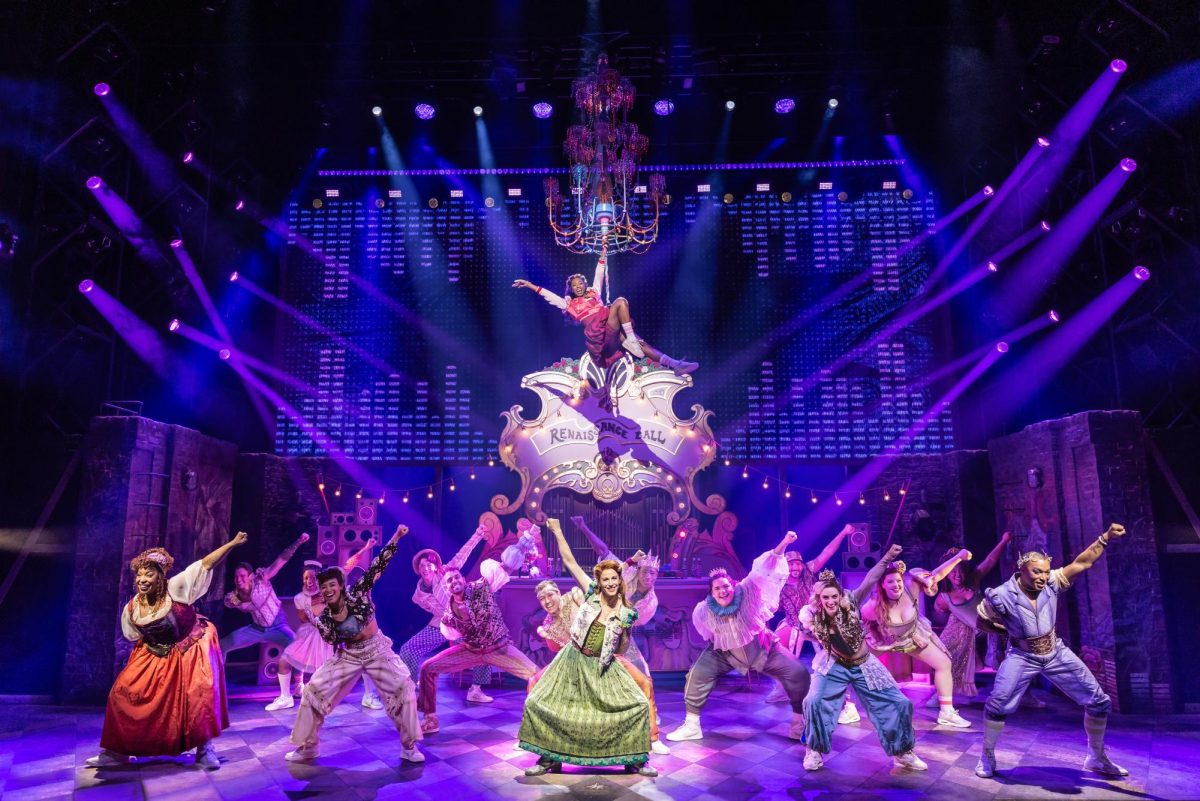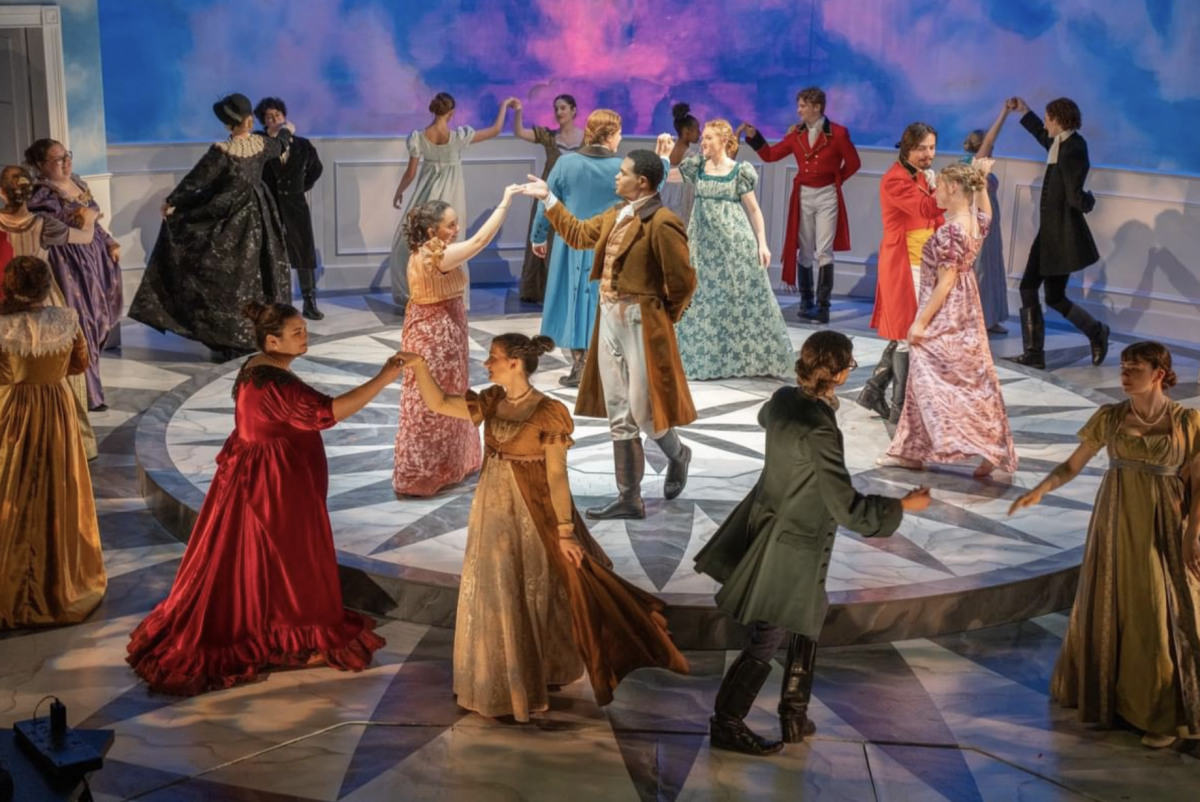For movie critics, putting together a year-end top 10 list is simultaneously the most rewarding and difficult part of the job. The reward comes from being able to go back over old notes and reviews to once again single out those special movies that moved, inspired and challenged us over the past 12 months.
The problem comes with the actual list-making itself. Along with the setbacks inherent with only singling out 10 great movies from the hundreds watched over the past year, there are still nagging questions: What constitutes a great movie? Should top 10 lists only be reserved for “important” movies? Does “art” take precedence over “entertainment?”
In a year like 2006, where many of my colleagues have been forced to defend their decisions to place populist entertainments like “Borat,” “The Departed,” “Little Miss Sunshine” and “Jackass 2” on their top 10 lists, these questions seem especially pertinent. As with most important questions in life, I have no idea about the answers. For me, the process of putting together a top 10 list has never been political. I’m not concerned with how a movie is going to age, which should be abundantly obvious, seeing as how I made the curious decision to include “Crash” on my 2005 list and stuck “Million Dollar Baby” at No. 3 in 2004. Rather, I want to single out the movies that inspired me, informed me, moved me and yes, entertained me over the past 12 months. To me, these are the four essential aspects of the movie-going experience, and they cannot be separated from one another.
In order to put together this list, I went through my notes and old reviews and jogged my memory about the year that was 2006. I saw nearly 100 of the movies that were released during the past year. From that number, I narrowed the list down to 20 that I thought had a claim to be included on this list. Next, I went through the process of finding the 10 movies that stood above the rest. This was no easy task, and it certainly did not get any easier when it came to numbering the movies, especially near the top, where I felt like “Miami Vice,” “The Good Shepherd” and “The Departed” — three similarly themed stories that use the genre conventions of noir thrillers to tell about exceptional men who are forced to come to terms with the relevance of their own unique moral codes in the modern world — were the most moving and chillingly effective trio of pictures to come along in years. I toyed with the idea of letting all three movies share the No. 1 spot, and during various drafts of this column, all three movies held the top spot. Only after watching all three back-to-back-to-back a few hours before handing in my final version of this article was I able to come to my final conclusions. I can only hope you enjoy reading this list as much as I enjoyed putting it together.
10) “Dave Chappelle’s Block Party”/”Neil Young: Heart of Gold” — Along with giving Steven Soderbergh license to cheaply mass-produce his own blend of shockingly uninteresting cinema, the growth of digital video has also made it easier and more affordable for aspiring filmmakers to produce documentaries. Sometimes the results are mixed, but when this technology is employed by actual filmmakers, the new, high-speed world of documentary filmmaking is an incredibly exhilarating one. Those of you wanting proof need look no further than “Block Party” and “Heart of Gold,” helmed by veteran feature filmmakers Michel Gondry and Jonathan Demme. Together, this ragged, emotive duo serves to remind us that truth can be as exhilarating as any fiction.
9) “Children of Men” — See it. It’s as good as everybody says.
8) “The Matador” — A largely unseen gem from last January, Richard Shephard’s story about the unique bond between a hitman (Pierce Brosnan) and a salesman (Greg Kinnear, who, let’s face it, quietly had himself one hell of a good year) was sold as a romp, but had a kind of quiet sadness to it that hit home. This one grew on me, and I get the sense that it is going to find its audience on cable and DVD, a lot like what happened to “In Good Company,” which I had atop my list in 2005.
7) “Inside Man” — Spike Lee’s first foray into genre filmmaking is a brilliantly tricked-out thriller. Along with being an enjoyable example of cinematic sleight-of-hand, fans of Lee’s work are sure to be entertained by the cheeky way he manages to slip in his own editorial asides. (Once again, I’d like everyone to note the shot where a bribe is offered to an NYPD detective in front of a 9/11 mural.) Anybody who is not convinced Lee is one of our three or four greatest directors need only to watch this back-to-back with “When the Levees Broke” to understand his range and passion for moviemaking.
6) “When the Levees Broke” — Spike Lee’s six-hour, multipart examination of post-Katrina New Orleans was the most provocative piece of filmmaking I saw this year, and for this reason, it has to be included on this list, even though it was only shown on HBO. Along with the haunting, horrifying tales of the days immediately following the storm, Lee’s most astounding feat is in pointing his camera on the way the media shaped the disaster, turning the events of September 2005 and beyond into easily digestible sound bites. Lee is merciless in the way he cuts through the hypocrisy of the bureaucrats and the people on the ground.
5) “The Prestige” — Like the trio of “Miami Vice,” “The Good Shepherd,” and “The Departed,” Christopher Nolan’s “The Prestige” examines the personal consequences of professional sacrifice. Nolan’s screenplay was the most audacious of the year, consistently raising the stakes along with its characters, until we’re not sure if Nolan has any more tricks left to use on us. The frightening thing here is that Nolan and his movie never run out of moves. We get the sense that the ending — shocking as it is — is not an ending at all, but just one more brutal twist of the knife.
4) “Stranger Than Fiction” — A lovely, gentle movie, this shimmering, bouncy, delightfully charming film is the first movie in a long time with the ability to fully come to terms with the intertwined nature of love and creativity in the mind of an artist. When you first see it, the movie comes across as “light” in the best sense of the word, but upon further examination, the movie and its characters — most of whom are designed to be shallow — have a kind of truth to it that is impossible to shake. That’s the ultimate twist in this movie: It makes us care.
3) “The Departed” — I put this below “Miami Vice” and “The Good Shepherd” because it lacks the ambition and scope of those two movies. It happens to be the most fun I had at the movies this year — a vicious, deliriously enjoyable junkyard dog of a movie, buoyed by pitch-perfect performances and an intricate, beautifully constructed script by William Monahan. This is Scorsese’s most complete movie.
2) “The Good Shepherd” — If the Corleone clan was a group of stoic Protestant bluebloods from Chevy Chase, Md., their story would very well resemble that of Edward Wilson, the icy, guarded centerpiece of Robert De Niro’s stunning CIA epic. Comparisons to “The Godfather” are not unfounded — De Niro works with a similar canvas, using the pulp appeal of a CIA thriller to tell a story about loyalty, sacrifice and family, much in the same way Coppola exploited the lurid conventions of the mob movie. As Wilson, Matt Damon perfectly inhabits a character that, much like his spiritual brother Michael Corleone, works so hard to protect his own power that he forgets why the kingdom is worth saving to begin with.
1) “Miami Vice” — Michael Mann’s career has been anything but conventional, yet he managed to outdo himself with “Miami Vice.” When it was released in the summer, Universal was eager to market the movie as a kind of cops-and-robbers extravaganza. This confused people when they first saw it, because Mann’s movie is probably the least bombastic $150 million movie ever — a quiet, introspective rumination of morality and identity in the post-modern Wild West, where the only real freedom seems to come from free-trade agreements. Make no mistake about it, Mann’s crime plotline is secondary for his own study of the future of heroism, sacrifice and, ultimately, genuine human contact, within the confines of a global economy that Mann presents as determined to bring our minds closer together while simultaneously isolating the soul. This is the first movie that tries to truly understand the role we play within an economic system that seems capable of perpetuating itself without our help. Mann is the only director bold enough to philosophize — with clear eyes and open heart — about this world we have made.
Honorable Mentions — For one reason or another, these movies couldn’t crack the top ten, but they are all great movies and worthy of your time. In alphabetical order, they are:
“An Inconvenient Truth”
“Ask The Dust”
“Down in the Valley”
“Hard Candy”
“Idlewild”
“Invincible”
“Monster House”
“A Prairie Home Companion”
“The Proposition”
“The Science of Sleep”
“Scoop”
Ray Gustini is a sophomore majoring in English and journalism. Want to compare “Best Of” lists with Ray? E-mail him at [email protected].







